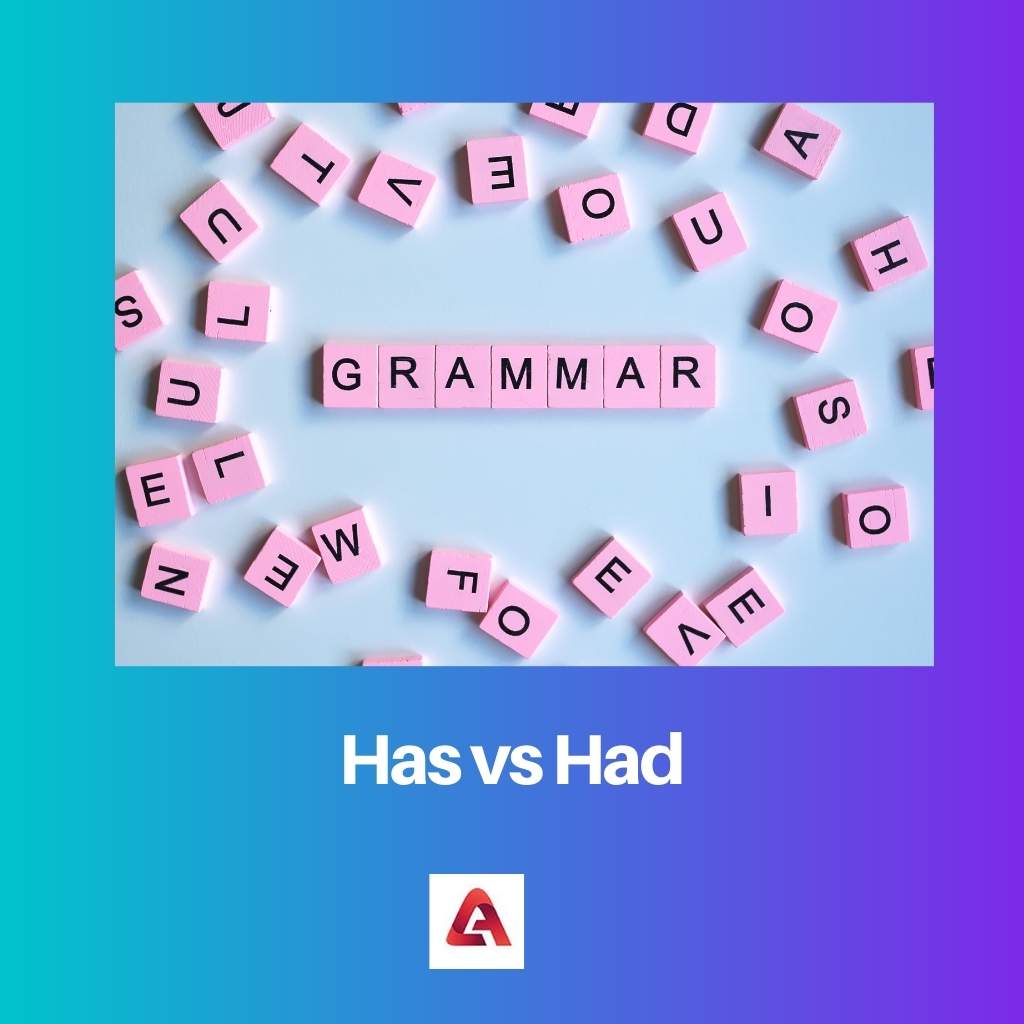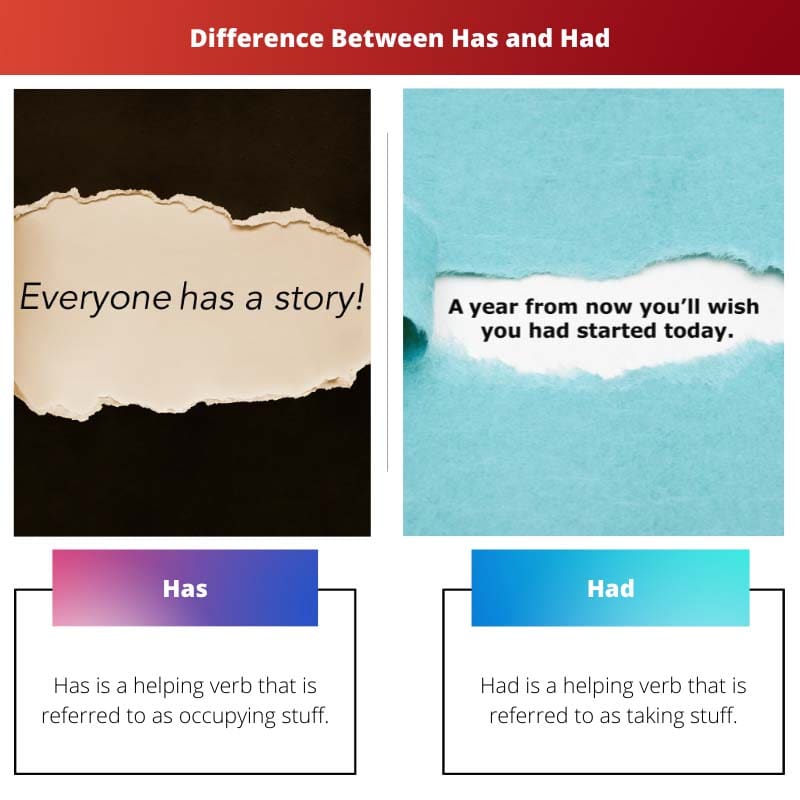To express a statement, question, request, command, or exclamation, sentences are used to drive a meaningful message through it, and that sentence uses words.
A sentence is nothing but a compound of phrases, which can be a verb phrase or a noun phrase along with a clause. These clauses can be either single or more than one.
A verb is a word that conveys a message of action or can convey a state of being, and that is what a verb phrase is made of. Now, that phrase should agree with the subject or the object used in the same sentence.
Key Takeaways
- “Has” serves as the present tense third-person singular form of “have,” whereas “had” is the past tense of both “have” and “has.”
- Use “has” to describe a present situation, action, or possession and “had” for past occurrences.
- “Has” combines with present participles to create present perfect verb forms, while “had” forms past perfect verb constructions.
Has vs Had
Has is a verb that means to possess, own, or hold, and it is the third person present of the word ‘have.’ It also means to undergo or experience. Had is the past tense or past participle of the word ‘have’ that means to own, hold, possess, or experience. It is sometimes used instead of ‘if.’

Having while using requires a direct subject along with one or even more than one object, and that is why it is one of the transitive verbs. Has is used while mentioning a third person in a sentence. Verbs that have only one subject in a sentence are called intransitive.
Had is also a transitive verb for the same reason, but the difference here is that it is used only while mentioning something that is in the past. Had is also used for referring to a third person.
Had can be used in place of the word ‘taken’ as they both are synonymous with each other. They both mean ‘deceived’.
Comparison Table
| Parameters of comparison | Has | Had |
|---|---|---|
| Tense | Has is used for referring to the third person but in the singular present tense of the verb. | Had is used for referring to the third person but in singular past tense and past participle of the verb. |
| Meaning | Has is a helping verb that is referred to as occupying stuff. | Had is a helping verb that is referred to as taking stuff. |
| Referred person | Has is used while referring to a third person. | Had is also used while referring to a third person. |
| Synonym | Own, possess, occupy are synonyms of has. | Taken is the synonym of had. |
| Past/present | Has is used while talking about something in the present. | Had is used while mentioning something that happed in the past. |
What is Has?
There are two kinds of verbs, as said before intransitive and transitive. It is the transitive one. This is because it requires a subject while using plus one object or more than just one.
It is used in the singular form of the past tense while mentioning a third person in a sentence.
This can be understood better with some examples- Sarah has pimples here, pimples are the objects that we talked about, and Sarah is the third person we are referring to.
Here, it is used to complete the sentence and make it meaningful. The word originated from Middle English, in which there was a word called ‘haven’ or ‘Habben’s.
The word Habben was from the old form of the English language, which is related to the word ‘heave’.

What is Had?
Had is another transitive verb that is used for referring to a third person in a sentence. It is used as the past participle and past tense of the verb ‘have’.
The word ‘taken’ can be used as the substitute for had as they are synonymous with each other, plus they both mean the same, which is ‘deceived’.
Let’s understand it with some examples- “John had his dinner early today.”, here John is the subject, and the dinner referred to here is the object, while the verb had is used to complete the sentence and to give it a meaning.
“She had a nice car”, here, the car is the object talking about, while ‘she’ is the third person.

Main Differences Between Has and Had
- The main difference between has and had is the tense they are used in Has is used for referring to the third person but in the singular present tense of the verb, while Had is used for referring to the third person but in singular past tense and past participle of the verb.
- Both of them are transitive verbs, which means both of them require a subject and objects while being implemented. Has is a helping verb that is referred to as occupying stuff, and Had is also a helping verb, as mentioned before, that is referred to as taking stuff.
- Both of them are used for mentioning another person or something, and that is why Has is used while referring to a third person in the same way Had is also used while referring to a third person.
- Well, they both have substitutes, too- Own, possess and occupy are synonyms of has, while Taken is the synonym of had.
- Has is used while talking about something in the present, but Had is used while mentioning something that happened in the past.
- ‘Sarah has a bike’ is an example of the verb ‘has’ while ‘John had a glass of juice’ is an example of the verb ‘had’.




